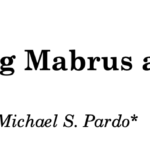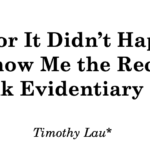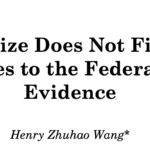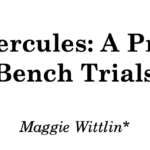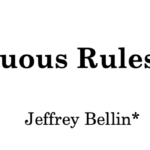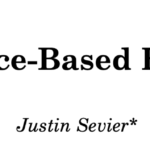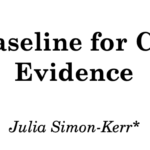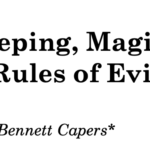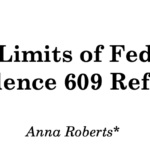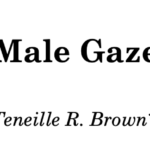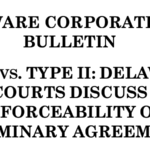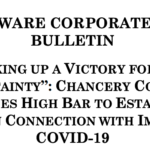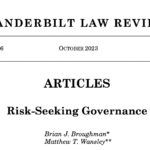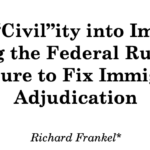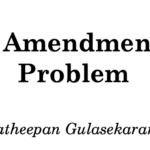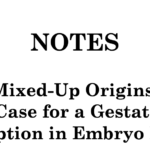Author
On Proving Mabrus and Zorgs
Nov. 27, 2023—Michael S. Pardo | 76 Vand. L. Rev. 1653 An unfortunate disconnect exists in modern evidence scholarship. On one hand, a rich literature has explored the process of legal proof in general and legal standards of proof in particular. Call this the “macro level” of legal proof. On the other hand, a rich literature has...
“Pics or It Didn’t Happen” and “Show Me the Receipts”: A Folk Evidentiary Rule
Nov. 27, 2023—Timothy Lau | 76 Vand. L. Rev. 1681 “Pics or It Didn’t Happen,” “Show Me the Receipts,” and related refrains are frequently encountered in online discussion threads today. They are typically invoked to demand corroboration in support of a claim or to declare from the outset that a claim is supported by some sort of...
One Size Does Not Fit All: Alternatives to the Federal Rules of Evidence
Nov. 27, 2023—Henry Zhuhao Wang | 76 Vand. L. Rev. 1709 The Federal Rules of Evidence have been so successful that many people equate them to the whole field of evidence law. But this is a false equivalence. Our world is complicated, diversified, and dynamic. So, too, is evidence law, which is like a rainforest in which...
Binding Hercules: A Proposal for Bench Trials
Nov. 27, 2023—Maggie Wittlin | 76 Vand. L. Rev. 1735 If you were a federal judge presiding over a bench trial, you probably would not want the Federal Rules of Evidence to apply to you. Sure, you might want to be insulated from privileged information. But you are, no doubt, capable of cool-headed, rational reasoning, and you...
The Superfluous Rules of Evidence
Nov. 27, 2023—Jeffrey Bellin | 76 Vand. L. Rev. 1769 There are few American legal codifications as successful as the Federal Rules of Evidence. But this success masks the project’s uncertain beginnings. The drafters of the Federal Rules worried that lawmakers would not adopt the new rules and that judges would not follow them. As a result,...
Evidence-Based Hearsay
Nov. 27, 2023—Justin Sevier | 76 Vand. L. Rev. 1799 The hearsay rule initially appears straightforward and sensible. It forbids witnesses from repeating secondhand, untested gossip in court, and who among us prefers to resolve legal disputes through untested gossip? Nonetheless, the rule’s unpopularity in the legal profession is well-known and far-reaching. It is almost cliché to...
A New Baseline for Character Evidence
Nov. 27, 2023—Julia Simon-Kerr | 76 Vand. L. Rev. 1827 Perhaps no rules of evidence are as contested as the rules governing character evidence. To ward off the danger of a fact finder’s mistaking evidence of character for evidence of action, the rules exclude much contextual information about the people at the center of the proceeding. This...
Race, Gatekeeping, Magical Words, and the Rules of Evidence
Nov. 27, 2023—Bennett Capers | 76 Vand. L. Rev. 1855 Although it might not be apparent from the Federal Rules of Evidence themselves, or the common law that preceded them, there is a long history in this country of tying evidence—what is deemed relevant, what is deemed trustworthy—to race. And increasingly, evidence scholars are excavating that history....
Models and Limits of Federal Rule of Evidence 609 Reform
Nov. 27, 2023—Anna Roberts | 76 Vand. L. Rev 1879 A Symposium focusing on Reimagining the Rules of Evidence at 50 makes one turn to the federal rule that governs one’s designated topic—prior conviction impeachment—and think about how that rule could be altered. Part I of this Article does just that, drawing inspiration from state models to...
Shifting the Male Gaze of Evidence
Nov. 27, 2023—Teneille R. Brown | 76 Vand. L. Rev. 1903 The Federal Rules of Evidence are a product of their time. They reflect not only the thinking of the 1970s when they were adopted but also the much older English common law on which many Rules were based. It should therefore come as no surprise that...
TYPE I VS. TYPE II: DELAWARE COURTS DISCUSS ENFORCEABILITY OF PRELIMINARY AGREEMENTS
Oct. 22, 2023—Robert S. Reder & Evan T. Kowalski | 76 Vand. L. Rev. En Banc 133 (2023) | When parties to commercial negotiations reach an agreement on certain basic transaction terms but are not yet ready to proceed to definitive documentation, they frequently will sign a preliminary agreement—usually called a letter of intent or an agreement in...
“CHALKING UP A VICTORY FOR DEAL CERTAINTY”: CHANCERY COURT REINFORCES HIGH BAR TO ESTABLISHING “MAE” IN CONNECTION WITH IMPACT OF COVID-19
Oct. 22, 2023—Robert S. Reder & Zachary R. Ryan | 76 Vand. L. Rev. En Banc 119 (2023) | Market dislocations associated with the rapid spread of COVID19 beginning in early 2020 presented parties to pending M&A transactions with two thorny issues under the documentation governing their transactions: first, which party bore the risk of pandemic-related damage to...
Risk-Seeking Governance
Oct. 6, 2023—Brian J. Broughman & Matthew T. Wansley | 76 Vand. L. Rev. 1299 Venture capitalists (“VCs”) are increasingly abandoning their traditional role as monitors of their portfolio companies. They are giving startup founders more equity and control and promising not to replace them with outside executives. At the same time, startups are taking unprecedented risks—defying...
Bringing “Civil”ity into Immigration Law: Using the Federal Rules of Civil Procedure to Fix Immigration Adjudication
Oct. 6, 2023—Richard Frankel | 76 Vand. L. Rev. 1379 Government lawyers frequently argue, and courts have frequently held, that noncitizens in removal proceedings do not have the same rights as defendants in criminal proceedings. A common argument made to support this position is that removal proceedings are civil matters. Accordingly, a noncitizen facing deportation has fewer...
The Second Amendment’s “People” Problem
Oct. 6, 2023—Pratheepan Gulasekaram | 76 Vand. L. Rev. 1437 The Second Amendment has a “people” problem. In 2008, District of Columbia v. Heller expanded the scope of the Second Amendment, grounding it in an individualized right of self-protection. At the same time, Heller’s rhetoric limited “the people” of the Second Amendment to “law-abiding citizens.” In 2022,...
Mixed-Up Origins: The Case for a Gestational Presumption in Embryo Mix-Ups
Oct. 6, 2023—Betsy Anne Sugar | Vand. L. Rev. 1521 Embryo mix-ups—instances in which fertility clinics mistakenly implant one couple with another couple’s embryo—confound courts’ determinations of who, between the two couples, are the legal parents. Lax regulation of the fertility industry permitted this relatively new injury to develop, and it has led to morally and legally...
